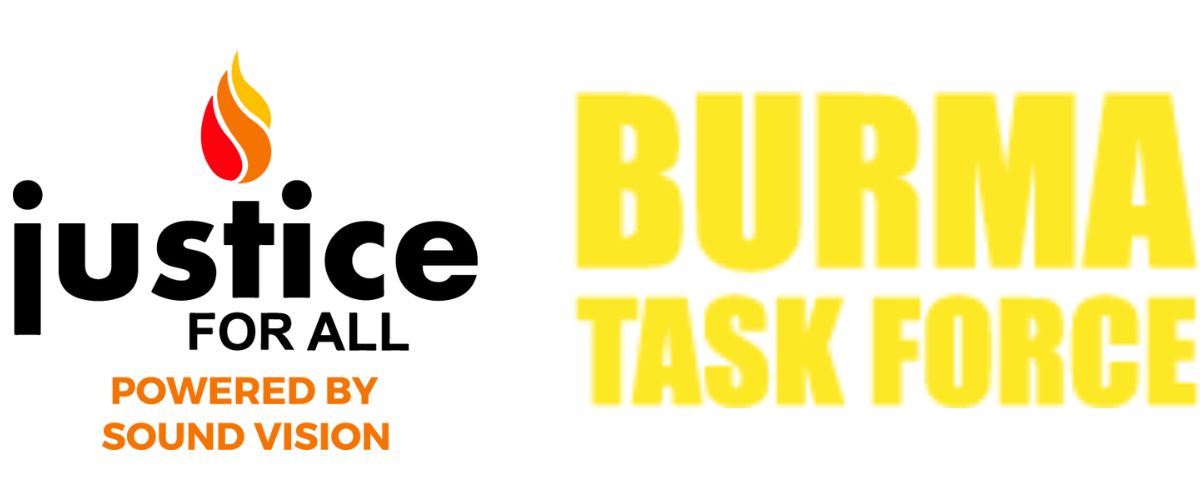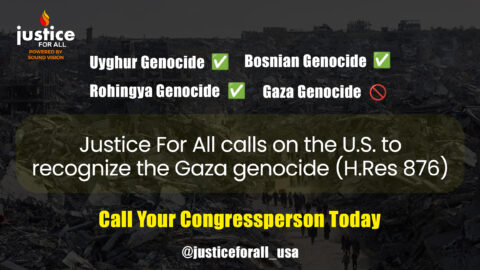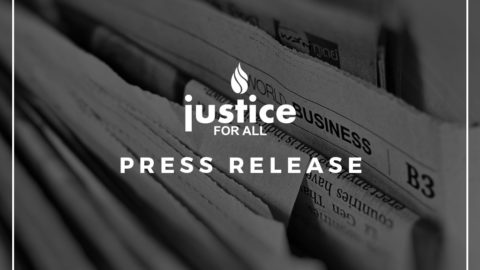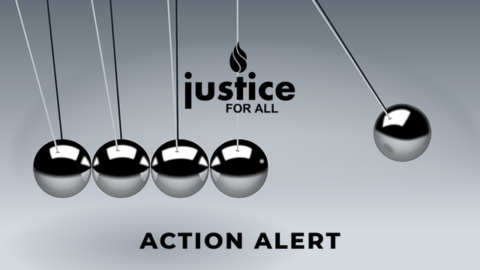THERE ARE 2 actions on this page, CALL and EMAIL. Please do both, then also…
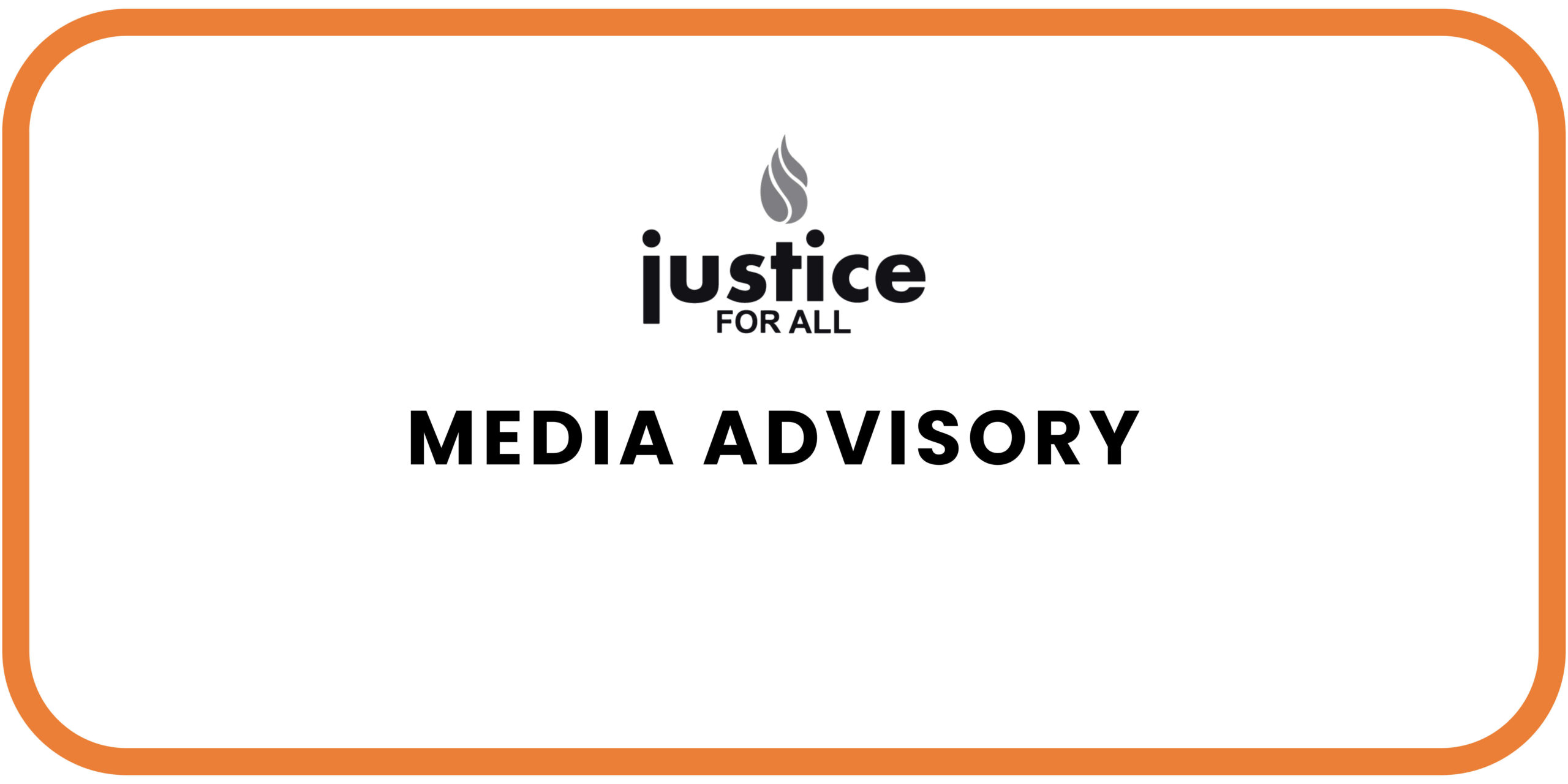
Ethical Reporting on Gaza Aid Distribution in the Context of Violence and Emerging Allegations of Misuse
Justice For All, a U.S.-based human rights advocacy organization, urges American journalists and news outlets to fulfill their ethical role as watchdogs of power in reporting on Gaza. The current aid distribution crisis, taking place under the U.S.-Israel-backed “Gaza Humanitarian Foundation,” has been marred by deeply troubling reports: deadly ambushes at food distribution sites, contaminated aid packages, and allegations of sites being booby-trapped or used to lure civilians into fatal harm.
These incidents must not be treated as isolated or accidental. Taken together, they reflect an emerging pattern of violence that demands rigorous investigation. Media coverage must reject euphemisms and provide the public with verified, contextualized information, not recycled talking points.
These are not isolated incidents or logistical failures. They represent deliberate acts of bio-warfare and mass violence under the guise of relief. In such a context, the media must decide whether it will serve as a conduit for state narratives or uphold its responsibility to hold power to account. Silence and repetition of official talking points risks making the media complicit. We are encouraging courageous, fact-based scrutiny to uphold journalistic integrity and credibility.
Key Ethical Considerations for the Coverage of Gaza Aid Distribution
1. Reporting the Weaponization of Aid as a Public Health Crisis and Potential War Crime
Journalists must use precise and ethically sound language when reporting on incidents where aid distribution has caused harm or led to fatalities. The standard of impartiality must not be mistaken for neutrality in the face of atrocity.
Verified Allegations of Contaminated Aid
On June 27, 2025, the Gaza Government Media Office publicly reported that Oxycodone, a highly addictive opioid, was found in flour bags distributed through the U.S.-backed Gaza Humanitarian Foundation. This alarming claim was based on four eyewitness testimonies and has been reported by multiple international outlets, including Anadoulou Agency, Lemkin Institute, among others.
These claims include reports that:
- Oxycodone pills were discovered inside flour bags;
- There is concern that in some instances, the drug may have been ground into the flour itself;
- Civilians, including children, were exposed to these distributions in dire humanitarian conditions.
Although independent forensic verification is still pending, these public allegations have been documented and should not be omitted from responsible coverage.
Why This Matters
If substantiated, the distribution of narcotics via humanitarian aid constitutes a public health emergency and may amount to a war crime under international law. Combined with repeated lethal attacks on aid seekers, this signals a broader pattern-not random mishaps.
Journalists must avoid treating these events as isolated or accidental. Instead, reporting should address:
- What led to the incident
- Whether live ammunition or force was used during aid distribution
- Oversight failures in the aid supply chain
- Attribution of responsibility based on verified facts
Failing to frame these issues accurately not only misleads the public-it potentially conceals serious violations of humanitarian law.
Do:
- Use accurate, plain language.
- Contextualize the incidents as part of a broader pattern.
- Consult international law experts to assess whether the incidents meet the threshold for war crimes.
2. Ensure Transparency in U.S. Involvement
The Gaza Humanitarian Foundation operates with U.S. funding, logistics, and political cover. Journalists have an obligation to scrutinize:
- The volume, content, and method of aid delivery
- Conditions placed on distribution
- U.S. oversight mechanisms (or lack thereof)
Why it matters: Taxpayer dollars are directly implicated. Failing to report this connection undermines democratic accountability.
3. Center Impacted Voices
Palestinian civilians, doctors, and aid workers are on the front lines of this crisis. Their voices must not be sidelined.
Ethical sourcing requires:
- Proportionality in sourcing (not over-relying on anonymous Israeli or U.S. officials)
- Transparency in attribution
- Direct inclusion of affected individuals and communities
Balance coverage by seeking input from:
- Medical professionals in Gaza
- Independent aid monitors and legal observers
- Survivors of aid site violence
4. Apply Equal Standards of Verification and Skepticism
Impartiality does not mean passivity. Journalists must verify and clearly label all claims, whether from state actors or impacted communities.
Good practice includes:
- Clearly stating when information is unverified, disputed, or confirmed
- Following up with corrections if new evidence emerges
- Applying skepticism equally, not just toward Palestinian sources
5. Frame the Story with Precision and Integrity
The militarized targeting of aid seekers and reports of contaminated aid are not simply “tragic incidents.” They may constitute serious violations of international humanitarian law.
Avoid:
- Sanitized language (“clashes,” “accidents”)
- Overly neutral headlines that obscure the perpetrator
- Minimizing patterns of violence as isolated “incidents”
Use:
- Terms grounded in legal and humanitarian standards: “civilian targeting,” “potential war crime,” “aid militarization”
A Call to Journalists: Uphold Your Mission
This is not just a media story, it’s a test of the press’s moral and professional courage. What is reported (and what is ignored) directly shapes public understanding of accountability and justice.
Journalists must decide whether to:
- Uphold the public’s right to truth
- Amplify the voices of the most impacted
- Interrogate-not simply repeat-official narratives
Ethical journalism is a safeguard for democracy and human dignity. It is not optional; it is essential.
Contact for Interviews, Sources, or Verification Support
Walaa Katoue
media@justiceforall.org
www.justiceforall.org
